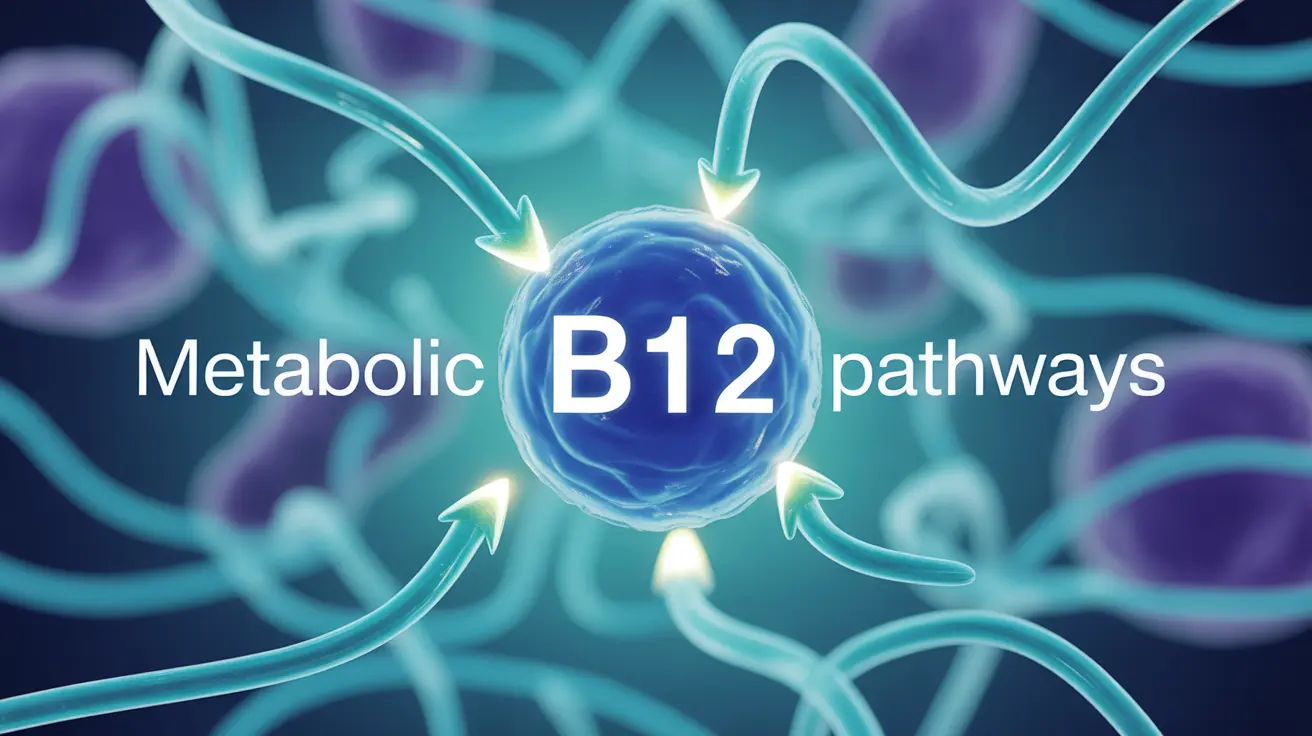If you're exploring ways to support your weight loss journey, you may have heard claims about vitamin B12's potential role in shedding pounds. While this essential nutrient plays a crucial role in energy metabolism, its direct relationship with weight loss requires careful examination.
This comprehensive guide explores the scientific evidence behind vitamin B12's effects on weight management, metabolism, and energy levels, helping you make informed decisions about supplementation.
Understanding Vitamin B12's Role in Metabolism
Vitamin B12, also known as cobalamin, is a vital nutrient that supports numerous bodily functions. Its primary roles include:
- DNA synthesis and cell formation
- Red blood cell production
- Nervous system function
- Energy metabolism
- Protein synthesis
While B12 is essential for these metabolic processes, having adequate levels doesn't automatically translate to weight loss benefits for those who aren't deficient.
The Connection Between B12 and Weight Management
Understanding the relationship between vitamin B12 and weight management requires examining several key factors:
Energy Production and Metabolism
Vitamin B12 helps convert food into glucose, providing energy for daily activities. However, this doesn't necessarily mean that taking extra B12 will boost metabolism beyond normal levels if you're not deficient.
Impact on Fat Metabolism
While B12 plays a role in fat metabolism, research hasn't shown that supplementation leads to increased fat burning in people with normal B12 levels. The vitamin's primary function is maintaining healthy metabolic processes rather than accelerating them.
B12 Deficiency and Weight Issues
A lack of vitamin B12 can indeed affect your weight and overall health:
Common Symptoms of B12 Deficiency
- Fatigue and weakness
- Loss of appetite
- Difficulty maintaining healthy weight
- Mood changes
- Poor concentration
Risk Factors for B12 Deficiency
Certain groups are more likely to develop B12 deficiency:
- Vegetarians and vegans
- Adults over 50
- People with absorption disorders
- Those taking certain medications
- Individuals with gastrointestinal conditions
B12 Supplementation: What You Need to Know
Before starting B12 supplementation for weight loss purposes, consider these important factors:
Forms of B12 Supplements
- Oral supplements
- Sublingual tablets
- Injectable B12
- B12-fortified foods
Safety and Effectiveness
While B12 supplements are generally safe, they should be taken under appropriate medical supervision, especially if using injectable forms. The effectiveness for weight loss specifically depends largely on whether you're deficient in the first place.
Frequently Asked Questions
Does taking vitamin B12 help with weight loss if I am not deficient?
No, there is no scientific evidence suggesting that taking vitamin B12 supplements leads to weight loss in people who already have adequate B12 levels. While B12 is essential for normal metabolism, extra supplementation won't boost weight loss in those with sufficient levels.
How does vitamin B12 affect metabolism and fat burning in the body?
Vitamin B12 plays a crucial role in energy metabolism by helping convert food into glucose and supporting the breakdown of fats. However, it doesn't directly increase fat burning beyond normal metabolic processes when levels are already adequate.
Can low vitamin B12 levels cause weight gain or increase the risk of obesity?
Yes, B12 deficiency can potentially contribute to weight changes, including weight gain, due to decreased energy levels, reduced activity, and altered metabolism. However, addressing a deficiency will only help with weight management if low B12 was the underlying issue.
Are vitamin B12 injections safe and effective for losing weight?
B12 injections are safe when administered by healthcare professionals but are only effective for weight loss in cases of diagnosed B12 deficiency. They are not a proven weight loss solution for individuals with normal B12 levels.
Who should consider vitamin B12 supplements and how do they affect energy levels?
B12 supplements are recommended for people at risk of deficiency, including vegetarians, older adults, and those with absorption issues. While supplementation can improve energy levels in deficient individuals, it won't provide additional energy benefits for those with normal B12 levels.




